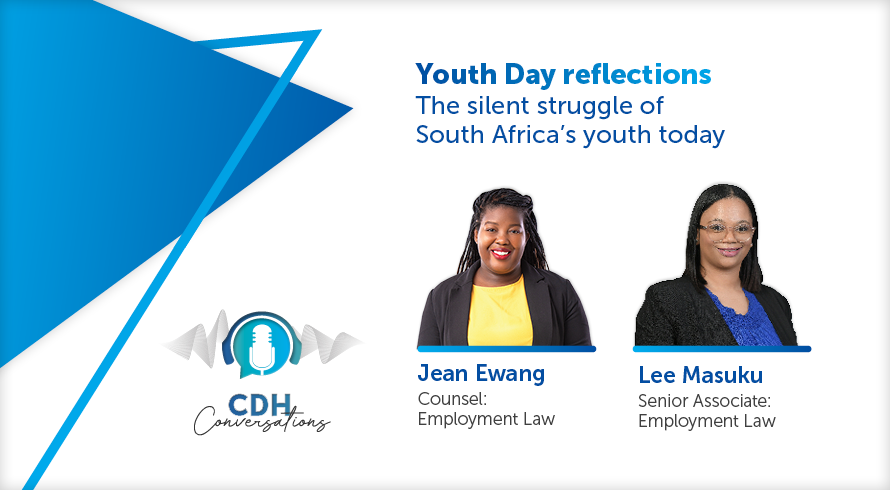Our team advised Sibanye in the ConCourt matter of Sibanye/M Bester
Our team advised Sibanye in the ConCourt matter of Sibanye/M Bester
Cliffe Dekker Hofmeyr represented Sibanye, the largest individual producer of gold from South Africa and one of 10 largest gold producers globally.
Our employment team advised Sibanye in the Constitutional Court matter of Sibanye/M Bester. The case relates to an assessment of racism in the workplace and, more particularly, deals with the question of direct and indirect racism. This dispute is not about defamation or injuria, but rather it focuses on statements which are actually racist or perceived to be racist in the workplace and which have the potential of causing divisions between workers and disrupting workplace harmony. The matter emanates from the Labour Appeal Court and was referred to the Constitutional Court on appeal.
You might also be interested in

28 Jan 2026
by Vivien Chaplin and Jaco Meyer
Public-private collaboration in mining: Global models and lessons learned
The 2026 Mining Indaba, to be held in Cape Town in February 2026, convenes at a moment when the global mining industry is being redefined by issues of governance, collaboration and sustainable development. Stakeholders face intensifying ESG expectations, rapid technological change and mounting pressure to demonstrate tangible local benefits. Investors scrutinise not only mineral reserves, but also the credibility of institutions, the clarity of rules and the predictability of government engagement.
Mining & Minerals
8 min read

26 Jan 2026
by JJ van der Walt, Sashin Naidoo and Lynsey Foot
New contractor, same business: Labour Appeal Court confirms section 197 application
On 27 November 2025, the Labour Appeal Court (LAC) delivered judgment in the matter of Electro Hydro World (Pty) Ltd v Murray and Roberts Cementation (Pty) Ltd and Others (JA132/24) ZALAC 62, concerning the application of section 197 of the Labour Relations Act 66 of 1995 (LRA) to the transfer of a grout business at a mine shaft. The central issue was: did the transfer of operations from one contractor to another, following a tender process, constitute a transfer of a business as a going concern, thereby triggering the automatic transfer ofemployees?
Employment Law
4 min read

18 Nov 2025
by Clarice Wambua and Lauriene Maingi
Kenya strengthens environmental sustainability oversight in the ICT sector
The Communications Authority of Kenya (CA) has launched the Environmental and Social Impact Assessment (ESIA) Guidelines for ICT Projects, 2025 and the Framework for Reduction of Carbon Emissions in the ICT Sector, 2025 (Framework). This marks a significant step toward embedding environmental sustainability into Kenya’s fast-growing digital economy. Together, these instruments establish a comprehensive framework that aligns Kenya’s information and communications technology (ICT) development with the country’s national and international climate goals, which are reflected under the Climate Change Act, 2016, the United Nations Framework Convention on Climate Change and the Paris Agreement.
Environmental Law
3 min read

23 Sep 2025
by Njeri Wagacha
Njeri talks to Levis Nderitu and Patrick Oyoo
Every month, CDH Kenya Partner, Njeri Wagacha publishes a podcast.
Corporate & Commercial Law
47:49 Minutes

27 Mar 2025
by Gerhard Badenhorst and Tersia van Schalkwyk
New VAT regulations published
On 14 March 2025, National Treasury published three long-awaited value-added tax (VAT) regulations in final format, which were initially released in draft format on 1 August 2024 for public comment. These regulations amend the definition of “ electronic services ”, amend the definition of “ valuable metal ” for the purpose of the application of the domestic reverse charge on supplies of gold containing material, and provide clarification regarding the accounting for VAT in relation to casino table games of chance.
Tax & Exchange Control
2 min read

23 Jun 2025
by Jean Ewang and Lee Masuku
Youth Day reflections | The silent struggle of South Africa's youth today
In this episode of CDH Conversations, Jean Ewang and Lee Masuku from CDH’s Employment Law Department delve into the pressing issue of youth unemployment in South Africa.
Employment Law
10:12 Minutes